Journalism
-
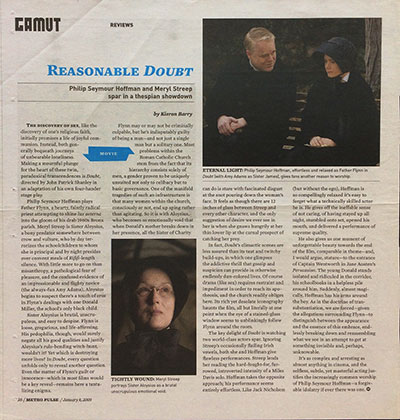
Doubt
John Patrick Stanley's Doubt reviewed by Kieron Barry
Click on thumbnail to read more.
-
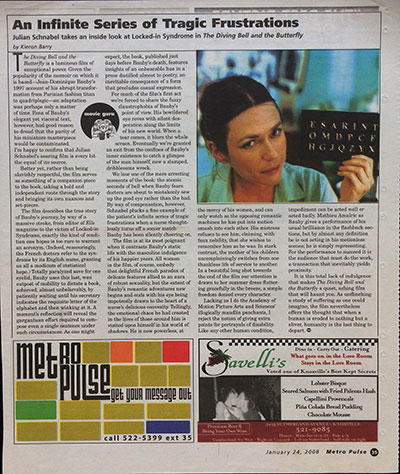
The Diving Bell and the Butterfly
Julian Schnabel's The Diving Bell and the Butterfly reviewed by Kieron Barry
Click on thumbnail to read more.
-
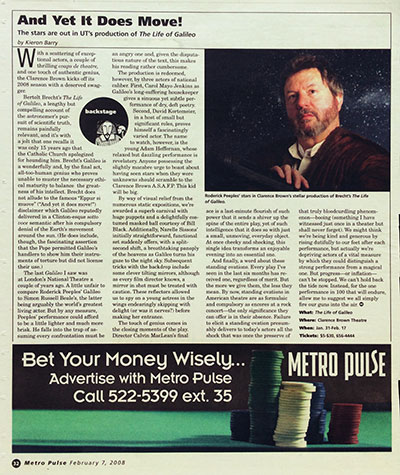
Brecht’s The Life of Galileo
Brecht’s The Life of Galileo reviewed by Kieron Barry
Click on thumbnail to read more.
-
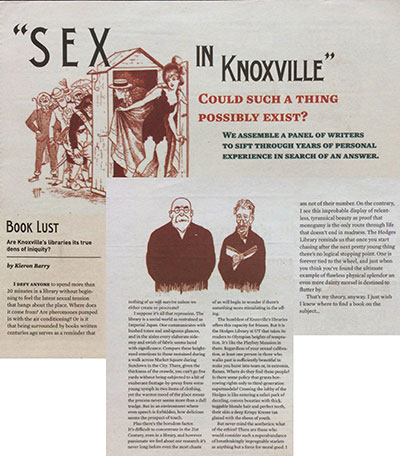
Sex In Knoxville
Sex In Knoxville - An article on sexual tension in Tennessee libraries by Kieron Barry
Click on thumbnail to read more.
-

Into Thin Air
Into Thin Air - Article on Shakespeare by Kieron Barry
Click on thumbnail to read more.
-
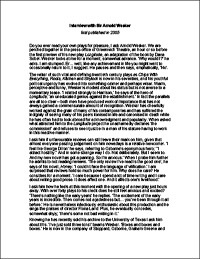
Interview with Sir Arnold Wesker
Do you ever read your own plays for pleasure, I ask Arnold Wesker. We are perched together in the press office of Greenwich Theatre, an hour or so before the first preview of his new play Longitude, an adaptation of the book by Dava Sobel. Wesker looks at me for a moment, somewhat askance. ‘Why would I?’ he asks. I am stumped. Er… well, like any achievement in life you might want to occasionally return to it, I suggest. He pauses and then says, emphatically, ‘No’...
Click on thumbnail to read more.
-
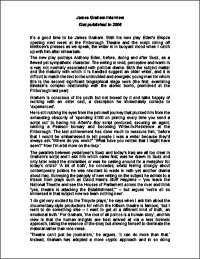
James Graham Interview
It’s a good time to be James Graham. With his new play Eden’s Empire opening next week at the Finborough Theatre and the script rolling off Methuen’s presses as we speak, the writer is in buoyant mood when I catch up with him after rehearsals...
Click on thumbnail to read more.
-
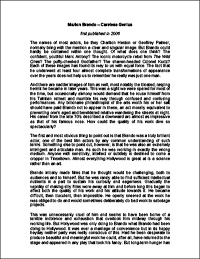
Marlon Brando – Careless Genius
The names of most actors, be they Charlton Heston or Geoffrey Palmer, normally bring with the mention a clear and singular image. But Brando could hardly be contained within one thought. Of what does one think? The confident, youthful Marc Antony? The iconic motorcycle rebel from The Wild Ones? The puffy-cheeked Godfather? The shaven-headed Colonel Kurtz? Each of these images has found its way to us with equal force. The fact that he underwent at least four almost complete transformations of appearance over the years does not help us to remember he really was just one man...
Click on thumbnail to read more.
-
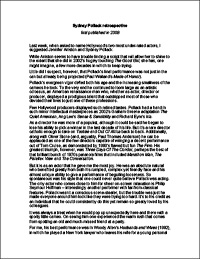
Sydney Pollack retrospective
Last week, when asked to name Hollywood’s two most under-rated actors, I suggested Jennifer Aniston and Sydney Pollack.
While Aniston seems to have trouble finding a script that will allow her to shine to the extent that she did in 2002’s hugely touching The Good Girl, she has, one might imagine, a few more decades in which to keep trying.
Little did I suspect, however, that Pollack’s final performance was not just in the can but already being projected (Paul Weiland’s Made of Honor)...
Click on thumbnail to read more.
-

review of The Selected Letters of Tennessee Williams, Volume 2: 1945 – 1957
Devlin and Tischler’s mammoth project divides Tennessee Williams’ life into three parts. This, the middle tranche of letters, picks up with Tennessee at the height of his powers, flushed after the recent success of The Glass Menagerie and with his greatest works, A Streetcar Named Desire and Cat On A Hot Tin Roof, right around the corner. (It seems mildly perverse to use his unevocative surname and, touchingly, he signs a good number of his letters simply ‘10’.)...
Click on thumbnail to read more.
-
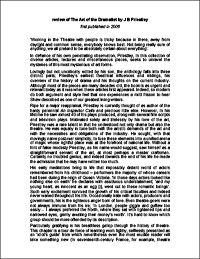
review of The Art of the Dramatist
‘Working in the Theatre with people is tricky because in there, away from daylight and common sense, everybody knows best. Not being really sure of anything, we all pretend to be absolutely certain about everything’.
In defiance of his own penetrating observation, Priestley, in this collection of diverse articles, lectures and miscellaneous pieces, seeks to unravel the mysteries of this most mysterious of art forms...
Click on thumbnail to read more.
-
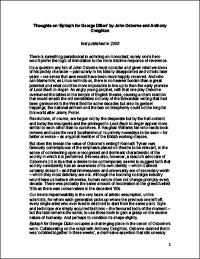
Epitaph for George Dillon by John Osborne
There is something paradoxical in admiring an iconoclast; surely one’s hero would prefer the logic of immolation to the more intuitive response of reverence.
It’s a question any fan of John Osborne must consider and given what we know of his prickly character – particularly in his bitterly disappointed and vitriolic later years – we sense that awe would have been more happily received...
Click on thumbnail to read more.